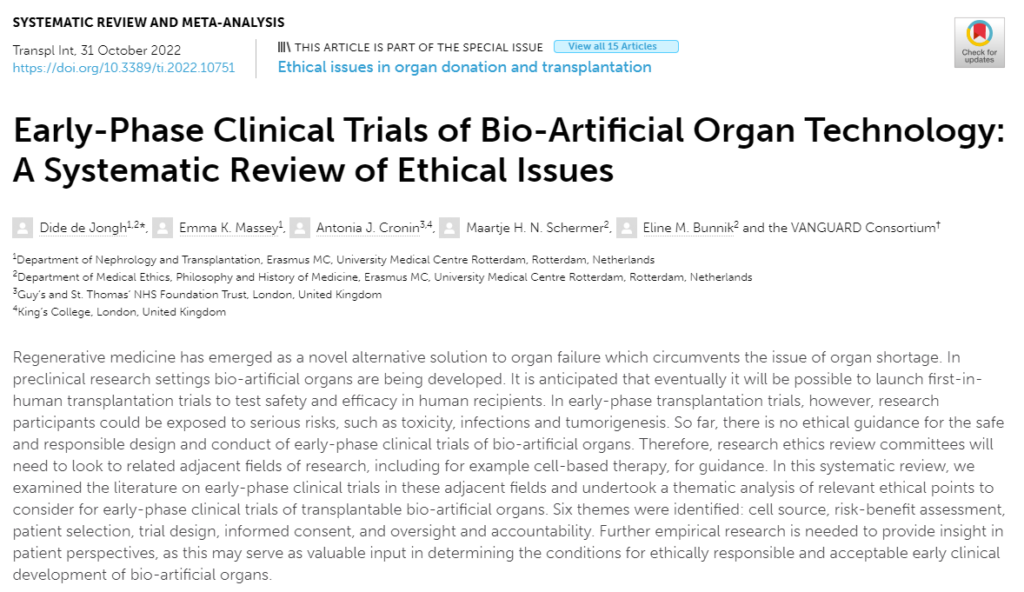A new VANGAURD publication titled Early-Phase Clinical Trials of Bio-Artificial Organ Technology: A Systematic Review of Ethical Issues has been published in Transplant International as part of a special issue on Ethical issues in organ donation and transplantation. The full article is available open access, read it online here: https://www.frontierspartnerships.org/articles/10.3389/ti.2022.10751/full
Abstract
Regenerative medicine has emerged as a novel alternative solution to organ failure which circumvents the issue of organ shortage. In preclinical research settings bio-artificial organs are being developed. It is anticipated that eventually it will be possible to launch first-in-human transplantation trials to test safety and efficacy in human recipients. In early-phase transplantation trials, however, research participants could be exposed to serious risks, such as toxicity, infections and tumorigenesis. So far, there is no ethical guidance for the safe and responsible design and conduct of early-phase clinical trials of bio-artificial organs. Therefore, research ethics review committees will need to look to related adjacent fields of research, including for example cell-based therapy, for guidance. In this systematic review, we examined the literature on early-phase clinical trials in these adjacent fields and undertook a thematic analysis of relevant ethical points to consider for early-phase clinical trials of transplantable bio-artificial organs. Six themes were identified: cell source, risk-benefit assessment, patient selection, trial design, informed consent, and oversight and accountability. Further empirical research is needed to provide insight in patient perspectives, as this may serve as valuable input in determining the conditions for ethically responsible and acceptable early clinical development of bio-artificial organs.

